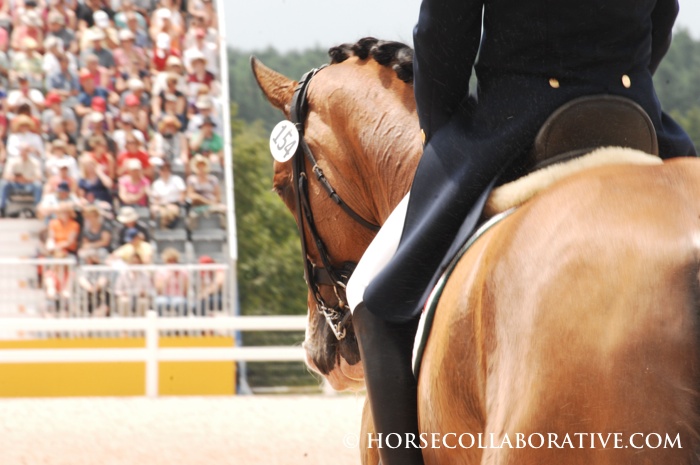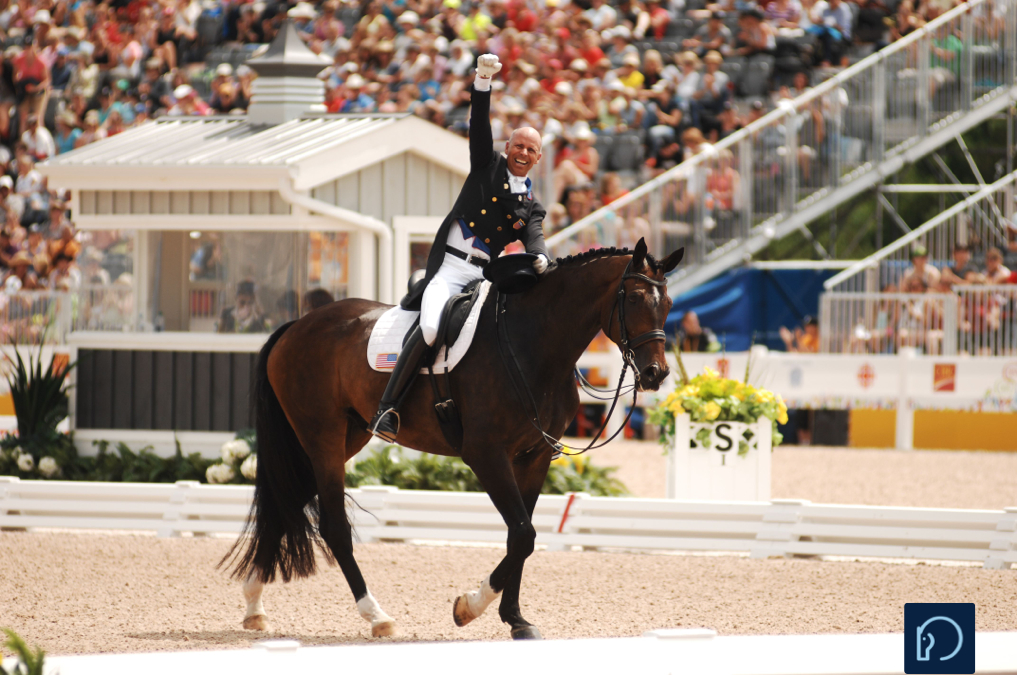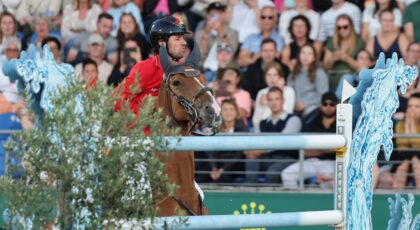1. Choose “do” words
Ella, an amateur rider trying desperately to conquer her nerves before her first competition, knows this phenomenon all too well. “I knew what I had to do, I had to avoid letting my nervousness effect my body so my horse wouldn’t feel it. So I kept repeating to myself, ‘don’t grab, don’t stiffen.’ But the harder I tried, the worse it became. Pretty soon my body was buzzing with tension.”
Why did Ella’s efforts result in even more tension? Our brains simply cannot process what “don’t” looks like. So when you say to yourself “don’t be nervous and freeze,” your mind struggles to image what you want. It does some gymnastics and gyrations trying to conceive of what you mean and, in the meantime, your head gets filled with images of “nervous” and “freeze.”
To counteract this effect, choose “do words” instead of don’ts. If you want relaxation, think of words like “loose,” “fluid” or “supple.” You can also develop short, directive phrases that inform your focus, like “soft hands,” “feeling body” or “eyes forward, receive in relaxation.”
As an exercise, think of all the times in your riding you tell yourself not to do something. Write all the statements out so you can see them clearly. Now take each one and turn the statement into “do language.” Make sure they are clear and concise before taking your next step of consciously applying the statements next time that situation presents itself. If you persist in this, you will likely notice a difference in both your tension levels and attitude.
2. Look for meaning

Ultimately, what gives the words or phrases you choose in your riding real punch is their meaning. Not their overall meaning, but their meaning to you specifically. You might think the word “relax” is a great key word to use in competition, but it fails to loosen your tense muscles. Your friend uses the phrase “soft is supple, supple is soft” but it leaves you cold. How can you find your own words?
It’s definitely a trial and error process. You often have to try them on, see them in action, to assess their impact on your personal psyche. Key words and phrases are just that: keys. They open doors to past experiences and feeling states. You know how easy it is for people who know you well to find your sensitive buttons? Well, you can just as easily find the buttons within yourself that bring forward good things about your riding.
Canadian rider Joanne Uhrig relies on two key words that hold a lot of meaning for her: ride and soften. She uses them when she feels her horse becoming powerful and herself losing the connection. They may seem like everyday words to others but to her, they are large and powerful in her mind, like directions in capital letters.
To ensure your programming success, assess what kind of outcome you want, then test to see what kind of resonance the words hold for you. If you want levity, then does the phrase or word make you laugh inside or out? If you want power, do the words make your adrenaline soar? Your body will tell you what words or combination works.
3. Keep it short, but descriptive

When utilizing key words or phrases, short is best, especially in competition. You simply do not have time to go through a detailed set of instructions. As well, too much analytical thinking (left brain thinking) will serve to take you out of the moment. And since dressage is about relationship and conversation, the “here and now” is the only place you want to be.
About the Author
April Clay is a rider and sports psychologist in Calgary, Alberta. Check out her site www.ridingoutofyourmind.com and selection of online equestrian sport psychology courses, including the Confidence Factor and Riding Through Fear, at www.outofyourmindcourses.com.


 May 6, 2016
May 6, 2016 

























